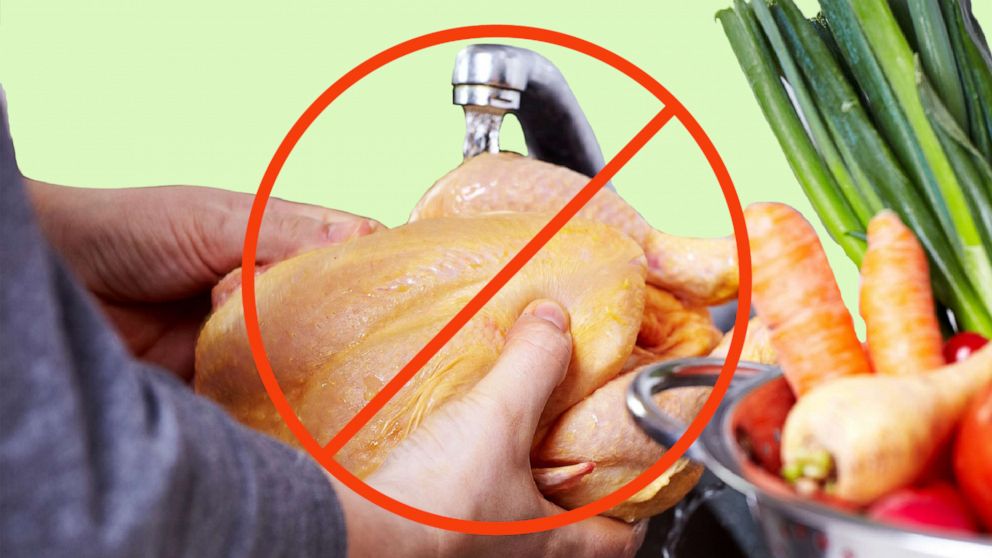Don't wash your turkey: Culinary pro shares top safety tips to properly handle raw poultry

Stop trying to wash raw chicken, or in the case of Thanksgiving, turkey.
The U.S. Department of Agriculture (USDA) issued a warning after a new study revealed in August that rinsing raw poultry puts people at risk for spreading germs that cause food-borne illness.
The USDA study found that "of the participants who washed their raw poultry, 60 percent had bacteria in their sink after washing or rinsing the poultry. Even more concerning is that 14 percent still had bacteria in their sinks after they attempted to clean the sink."
Further, it concluded that "26 percent of participants that washed raw poultry transferred bacteria from that raw poultry to their ready to eat salad lettuce."
When the CDC tweeted a similar warning that washing raw chicken was bad, some home cooks were shook.
Chef and educator from the Institute of Culinary Education, Palak Patel, spoke to "Good Morning America" about the best practices for poultry prep.
Breaking down safe turkey and poultry prep
Why is it unsanitary to wash a raw chicken or turkey?
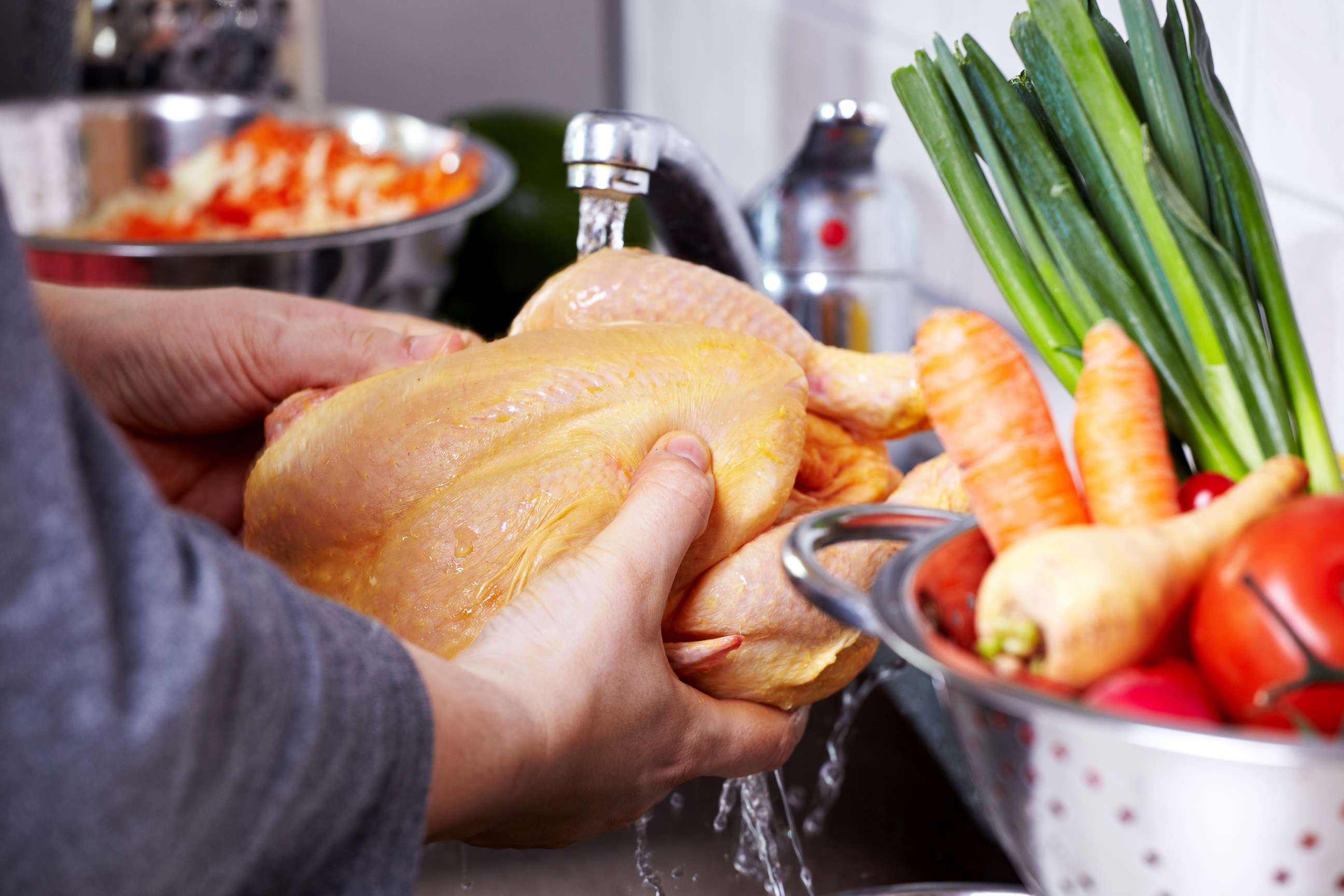
Washing raw chicken can cause bacteria on the chicken to splash and cling to clean surfaces, including your hands, causing cross-contamination. Cut out any steps of washing chicken from the recipe entirely.
Just cooking poultry thoroughly eliminates harmful bacteria and pathogens.
What's the safest way to handle raw turkey or chicken?
The safest way to handle raw chicken is to prevent raw poultry and its juices from touching other foods, especially fruits and vegetables.
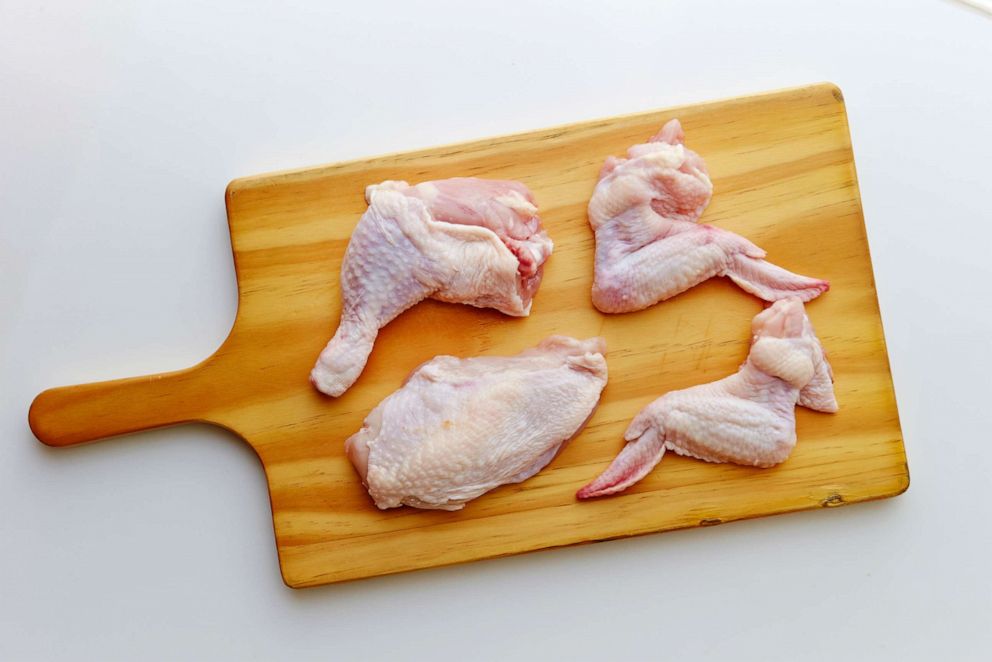
Before and after handling raw poultry, be sure to wash your hands, surface, knives, tools and cutting boards with warm, soapy water for 20 seconds.
Where chicken is placed in the fridge and freezer is important as chicken juice has a tendency to leak outside of its container. This can cause contamination if it comes into contact with your produce or cooked food.
Place chicken package in a bag or remove and place it in a container. Alternatively, place it on a plate, then cover it -- and always store it on the bottom shelf of your refrigerator.
How can you ensure a raw turkey is properly cleaned and sanitary?
After buying poultry, store it at a proper temperature in the refrigerator on the bottom shelf. If the meat is frozen, thaw it in the refrigerator overnight and not on the kitchen counter. At room temperature, poultry and other raw meat can develop harmful bacteria.
Use thawed poultry within 48 hours and do not put it back into the freezer after defrosting.
Pre-prep all ingredients, including chopping and pre-heating pans, before handling raw poultry.
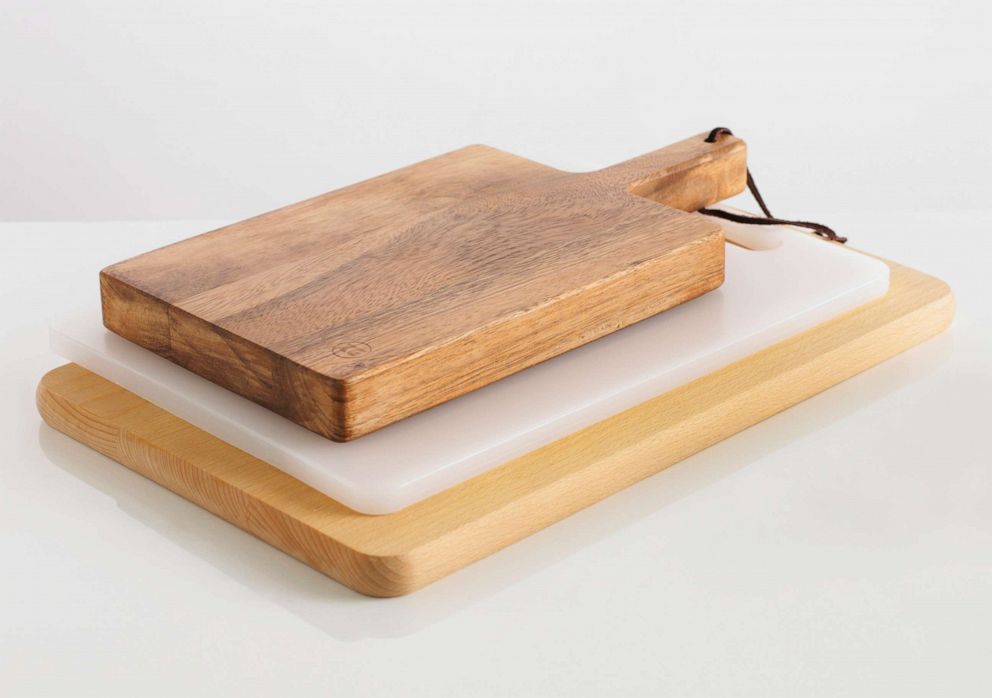
Pro Tip: Invest in two separate cutting boards, one for meat only and another for produce. Use tongs to handle raw and cleaned tools for cooked meat.
Don't wash the chicken, but wash your hands before and after handling chicken. Limit handling raw food as much as possible during prep and cooking.
Once the chicken is cooked, the risk of food poisoning is gone, but if there is any cross-contamination during cooking, there is still a risk for illness from consuming the raw produce.
It's not safe to refreeze chicken that has been defrosted.
The best ways to safely cook turkey or chicken
To cook chicken evenly, prepare a chicken breast by pounding it to achieve even thickness. Place chicken breasts on a sheet of plastic wrap, cover them with another sheet of wrap and give them a few whacks with a kitchen mallet, focusing on the thicker end. There's no need to beat them thin, just even them out a little.
Start with patting chicken dry -- you'll get a much better sear and a better chance of getting that nice golden color. Dry surfaces ensure a seal from the outside to keep juices inside, keeping the chicken juicy.
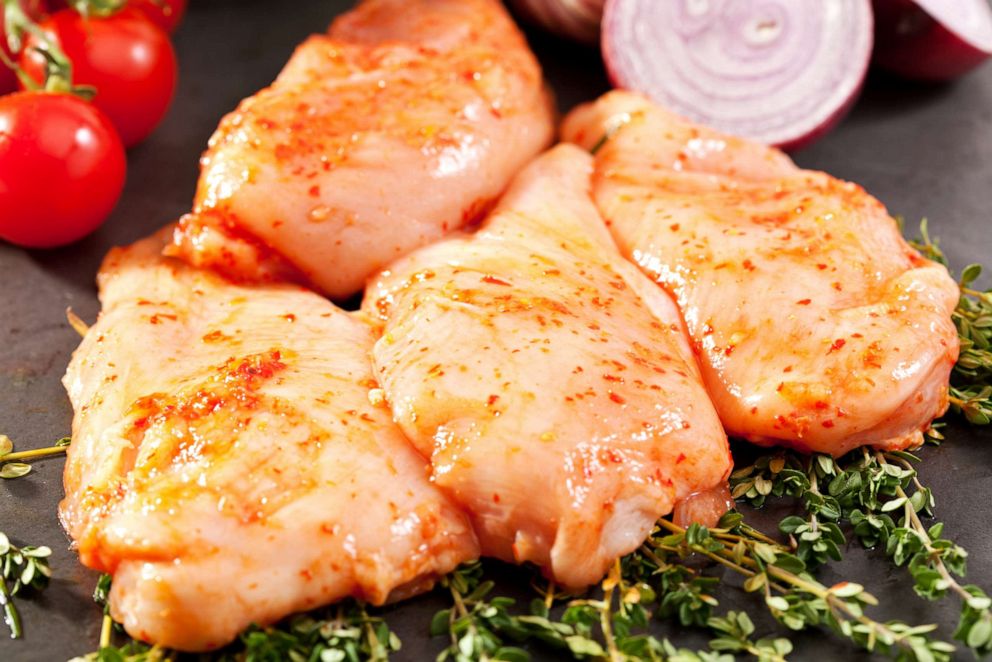
Rely on a proper thermometer. An under-cooked breast isn't safe, but an overcooked isn't tasty. Use an instant-read thermometer to make sure the thickest end gets to 155 degrees. Carry-over heat will take it to 165 degrees, which is safe, without drying them out.
Pro tip: A digital thermometer reads temperatures accurately and removes any guesswork.
Marinating chicken breasts overnight is the best way to add flavor. Then, sauté them in a skillet.
Boneless, skinless chicken breasts are very common because they are easy to handle and require very little cooking time. They don't have much taste, though, so add a marinade beforehand or surround them with lots of flavor after they're done cooking.
An earlier version of this story was originally published on May 14, 2019.
